|
At this point in my journey, I feel it is important to reflect on this project as a whole, as it’s been uniquely challenging to write a short memoir every single week. But first you may wonder how this whole 52 Memoirs thing even started, since I realise I’ve never actually shared that information.
This project wasn’t thoroughly planned out or considered for months, weeks, or even days. One morning, I decided it would be a good thing to do, and by the end of that day I’d launched the blog. That’s how I am – impulsive, decisive, and committed. If I start a project, I launch with an end-date or exit-goal in mind from step one. If an idea seems good enough, I run with it. It maybe isn’t always the best approach, but I’m learning to accept it as one of my unique strengths. I’m not someone who sits around waiting for a moment to be handed to me, I create one. I don’t ponder actions for a long time, I just take them. I dive in, adapt and learn on the go, and it means I live with purpose and impact nearly all of the time – even if sometimes it’s risky or physically and emotionally draining. But why did I have the idea in the first place? Well, it comes down to the power of storytelling. I find it incredibly powerful to connect with other people’s stories. Stories that I can empathise with to one extent or another. Those stories mean more to me than I can explain. Conversely, whenever I’m not able to connect a part of my identity – something I’m perhaps struggling with – to a story, I feel the cold ache that comes with feeling like you’re all alone. After I did my TEDx talk, and shared a relatively small part of myself in a public platform, a large number of people have reached out to me. They mostly thanked me for opening up because they found meaning or inspiration in my words. To be honest that was quite surprising because I didn’t think my talk was a particularly intimate revelation – but it was still very much an honest part of myself and I’m so humbled and grateful that people could connect with it. I haven’t yet gone into what it was like to grow up biracial in a very white part of Australia, to be declared a child genius then struggle with a fear of inadequacy and unfulfilled potential over a lifetime, to care for a parent with stage four cancer, to carry the shadow of a horrifyingly abusive father around with me – but I will tell each of these stories, when the right week comes along. Telling these stories helps me to live unashamedly and occupy my own identity and my own space, which I think is incredibly important for anyone to do. Storytelling can also displace power, and there are a few issues I want to unpack and narratives I want to reclaim. But most importantly – I want these stories to be out in the public arena so that other people who have maybe lived similar lives in these small and specific ways will realise they aren’t alone, like I too often believe I am. The impacts on my writing have so far been tremendous, and it’s only been eleven weeks. I have tried to master a kind of tactfulness when approaching certain topics, but it is incredibly hard to tell my own stories without dragging in the stories of other people who have not always done the best things by me, but who I don’t want to hurt all the same. So far I’m proud of the way I’ve managed to tell the truth without exposing or upsetting those people, and it’s a skill I only hope to improve upon throughout this journey. I’ve received some great feedback so far, but as I approach the three-month mark and publish Memoir 12 of 52 next week, it would be great to get more of a sense of what’s working and what isn’t. It doesn’t mean I’m going to just flat out agree with you, but it’s crucial to understand what audiences like and don’t like, so please hit me with your comments! Emails are always welcome, it doesn’t matter if we’ve never spoken or if you just stumbled. I mean it, I’m open, so if you’re reading this please say hi. I’ll see you next Wednesday, when I plan to tackle the topic of elitism in higher education to celebrate the day I graduate from my Masters degree! Get ready for me to crack this issue wide open, building on a lot of what was discussed in Memoir #2: Why I Decided Not To Do A PhD. This is the eleventh in a series of 52 Memoirs I will be posting weekly until April 2018. Look out for new posts every Wednesday! 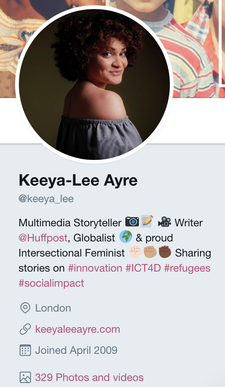 A few months ago, I changed my Twitter bio to include that I am a “proud Intersectional Feminist ” and I’ve since received a number of comments and questions about what that means. To be honest, I didn’t know the concept was so left-of-field to my follower base, nor did I realise how few people seem to think about the implications of social oppression. Intersectionality represents the idea that multiple identities intersect to create an entirety of experience that is uniquely composed and can’t be reduced or understood in any of its single parts. Basically I accept the theory that social inequality is multidimensional, and that there are multiple axes of oppression that any individual or group can experience such as racism, homophobia, fatphobia, sexism, classism, xenophobia and other forms of bigotry. If you’re a lesbian woman for example, you are likely to have very different experiences if you are white or black, cis or trans, rich or poor, thin or fat. Being aware of these nuances is important so we are able to more thoroughly consider the ways that systemic injustice is created and maintained within society. As for most of my social-justice-minded allies, this isn’t some kind of PC bandwagon I jumped on as an adult: it’s the consequence of witnessing many difficult things I disagreed with throughout life, realizing that most of us in one way or another participate in the perpetuation of oppressive social norms. When I was about eight or nine years old, I remember watching an episode of Maury on television. For those of you lucky enough to have no idea who Maury Povich is, it was basically the worst kind of tv programming. I remember the show pretty vividly even though I was so young watching it, because essentially they trucked out people perceived as violating social norms onto a stage in front of a live studio audience, and shamed and interrogated them. Queer people, trans people, sexually liberal people, single mothers, black families, little people, you name it. The paternity testing segments stick out the most in my memory. Maury would interview a couple on the stage, a woman usually holding a baby or letting a toddler crawl around while ignoring or swearing at someone she was once intimate with, while the guy either swore back or called her a liar (or much worse). Maury would [correction: according to the internet, still does – this crap is still on!] rile up the crowd, while holding the results of the paternity test in an envelope. He’d then slowly read the paper and shout into the microphone “you are the father!” in which case the woman would look triumphant while the man despaired, or “you are not the father!” while the man would prance around pumping his fists while the crowd called a single mother a slut. In one of these paternity testing segments, I remember a particularly confronting intersectional situation. A black man who was a little person, was verbally battling with a ‘fat’ white woman with a visible disability. They were hurling all kinds of abuse at each other, because she claimed he was the father of her child and he refused to believe it. My young brain couldn’t deal with everything that was going on, because I was trying to understand how difficult both of their situations must be while also despising them for being so vile to one another. This has been burned in my mind since, and is one of the reasons I’ve always thought about the complex nature of multidimensional identity. For full disclosure: I’ve tried to find this segment on the internet for years and I can’t, so it may be a false memory, but I remember it clear as day. Flash forward a decade, and a similarly confronting situation unfolded, this time right in front of me, with people I knew very well. In my very-early-20s I worked at a refugee assistance charity with people I greatly admired. Many were intelligent and passionate people who could be earning much more money in other industries but made sacrifices for a cause they believed in. I held them in high esteem, and for a while, thought they were morally and ethically infallible. As we didn’t have much income, being a funding-dependent charity, we had an office space in the back of the car park of a Christian organisation. We shared that office building with a program that supported teenage mothers. Over time, I heard horrible comments from my co-workers and even clients, about the women in that program. They were described as ‘filthy’, ‘poor’ women with ‘no class’ by some of my colleagues. Likewise, the women in the program and their social workers were often horrified when they came in contact with the refugees, and made many complaints about them being in the building. Then came the day when I met a refugee girl who was in the program, and I was acutely aware of how difficult her situation must be, with scorn and judgement from all sides. I found this very difficult to process because I had assumed that people who were empathetic to one cause, and aware of it, would likewise be empathetic to the other. But unfortunately, that was naïve of me. I’ve seen this pattern replicated time and time again in many different contexts, and struggle to understand how people can value one aspect of oppression above others. So, for now, all I can think to do is to continue to proudly wave my intersectional feminist flag and keep trying to have these conversations whenever I can. This is the tenth in a series of 52 Memoirs I will be posting weekly until April 2018. Look out for new posts every Wednesday!
In April I spent just under two weeks in my hometown, Western Australia, visiting my Mum in my childhood home. It was my first time back in nearly two years. When my husband Alex and I packed up and left (indefinitely) to pursue our careers abroad, I left dozens of boxes of my clothes, shoes, bags and accessories in the spare bedroom at her house. Being the champion that my Mum is, she doesn't mind being a pseudo-storage facility for a future version of me. The things that we kept all felt completely essential at the time. When Alex and I moved out of our house (our ‘dream’ future rebuild project on a great block of land, that we have a mortgage on, and tenants currently in) and sorted what we had to scrap from what we would need in the future – we worked based on the idea of what we would need when we were in our 30s and ‘established’. We were planning for hypothetical versions of ourselves, and we thought we were being extremely selective. Some of the ‘bigger’ items we kept made sense. We’d be stupid, insane, or both, not to keep our best kitchen appliances, the gorgeous artworks we’d been given as wedding gifts and our ridiculously expensive mattress (that we only slept on for a few months before deciding to move). But a lot of other items made the cut too, things that weren’t important enough to shove into the four suitcases we were able to bring with us on the plane when we first left for New York... but we figured we'd definitely want to collect all of it later. Those items reveal how much we’ve both changed more than any deliberate self-reflection was able to - I am a wildly (or conservatively?) different person today than I was even in 2015. The itty-bitty rainbow jumpsuit with a deep plunging neckline that I’d thought was fierce now looked like something a tween pop star would be photographed in on TMZ, the sequinned blouse I’d picked up in a charity shop in San Francisco looked at best fit to wear to an 80s themed party, and the baggy leather pants I had kept in my closet for the day they’d finally work almost seemed like a practical joke. In Perth, with all of our space, a minimalist wardrobe felt like something that I could only dream to have on Pinterest. Having to live in a tiny room in London has made me a true functionalist by necessity. My wardrobe currently consists of beautiful staples – structured, comfortable pieces that all work together in a palette, effortlessly blend from work to play, and fit in about 1.5 metres of closet space. By being forced to have less – I’ve learned to be selective, to understand my own style and to value what I have so much more. Tiny steps towards feeling like that 'established' version of myself, I guess. So before we left for our long-haul journey back to London via Jakarta, while loading a car-load of things I once thought reflected my identity into the charity donation bin, I felt an overwhelming sense of catharsis. By knowing what I’ll never wear again, I’m able to appreciate exactly who I am right now. This is the ninth in a series of 52 Memoirs I will be posting weekly until April 2018. Look out for new posts every Wednesday!
Something happened today that was like a total déjà vu moment. Well no, not really, since it wasn’t déjà vu – it was a moment almost entirely replicating itself. I was sitting down with my boss, an intelligent, thoughtful and passionate woman who I admire and who always fully supports me professionally and creatively (aka ideal feminist boss) and after discussing a bunch of ongoing projects, we ended up talking for a moment about life. She told me that she’d described me to her husband in the past as someone who does a lot of amazing things and has a lot of passion and energy. Obviously, that was lovely to hear. But then she told me that very recently, she’d decided that I do “too much” and maybe it wasn’t a good thing.
She then asked me if I finished all of the projects I started (yes) and how that worked out for me over time. This was all framed in a friendly way, and I took it well. She then commented that maybe that’s ‘just how I am’ if it really does work for me. Interestingly though, this isn’t the first time I’ve heard similar feedback in the same context. About four years ago, my then-boss, a woman I also greatly admired – a strong, intelligent, refugee lawyer – told me almost the identical thing. That I seem so passionate and full of energy, always pursuing projects, but that it was all “too much” and there almost was no way I could actually be completing everything to a high standard. The first time I heard this feedback, I took it as being actionable. I didn’t see a problem with me, I saw it as a problem of perception, and of other people’s imagined limitations. I had no reason to doubt my own capacity because I always ensured that I delivered on every commitment I made, and had excellent references attesting to that. But as a takeaway, I decided to slim down my resume significantly. While other people might think adding a volunteering commitment of 10 hours per week for three years was a great thing to showcase, in my case it was one of many to be cut. This is because with all of my work and volunteering commitments, it put me at over 100 hours per week of output. That’s exactly how much time I was logging across different endeavours and supporting projects: but people like my boss (and surely others) looked on with disbelief. After I began to talk about only half of the experience I had, I started to gain more success when applying for other opportunities like leadership roles, other positions and events. I essentially noticed a direct correlation between making it seem like I’d done less, and being recognised and rewarded more. I fully understand that for many people multiple full-time loads wouldn’t be manageable (but as I’ve pointed out before, I had dire circumstances spurring me on) but it seems quite ridiculous for an employer to assume it literally isn’t possible. Speaking from experience: it is. Over one six-month period I was running a non-profit organisation, studying a full time honours course load while writing a thesis, running a small migration law business, spending two hours a week tutoring refugee children, planning my wedding, and a permanent overseas move – then decided I was so busy I might as well start my Masters degree full time concurrently since it really couldn’t get any worse. Compared to that version of myself I’m doing very little now, and I’m still getting the “too much” line! So I’m not going to adapt to the feedback again, I’m just going to note that it’s a persistent issue, and keep moving forward. Next time you feel tempted to dismiss a CV that reads like mine did (before the slim down), or to raise an eyebrow at a seemingly ‘impossible’ timeline or schedule – remember that you might be pushing away high-performing individuals. If someone really does have that much energy (and their references attest to it) and they want to swing some of it your way, you shouldn’t pass up on the opportunity to funnel it into your work. Seize those people and challenge them, then let them surprise and amaze you. The world of work is changing fast and who knows what skills and talents will be needed in 5, 10 or 20 years. The more energetic and passionate people you can attract to your cause, the better! This is the eighth in a series of 52 Memoirs I will be posting weekly until April 2018. Look out for new posts every Wednesday! I have spent the last week in Sydney for the EU-Australia Leadership Forum. I was fortunate enough to have been selected for the Emerging Leaders cohort, along with 24 other Australian and 25 European delegates. It was an intense and rewarding programme. We had stimulating conversations about international trade, security, technology, innovation and education, among many other areas of discussion. After spending our Saturday developing policy recommendations, we were able to present these to the Senior Leaders gathered from across Europe and Australia from diverse sectors including government, media, business and healthcare. We covered everything from fake news to cyber attacks, medical research to social cohesion, and Brexit to space exploration. One of the recommendations coming from the education team, mostly comprised of Europeans, was for Australia’s education curriculums (each state/territory has their own system) to reincorporate mandatory language learning. They highlighted the significance of both European and Asian languages for Australia, which I whole heartedly agree with. As many of our European partners understand: foreign languages are critical to more meaningfully understanding other cultures. When you only know English, you are bound to receiving an Anglo-centric view of the world. Australian news outlets are heavily slanted to British and American perspectives, for the simple reason that the vast majority of our journalists can’t directly access foreign sources. The diverse perspectives reported in foreign media outlets, often never translated, are largely out of our reach. After this recommendation was presented to the Senior Leaders, one older Australian man grabbed the microphone to respond. I’m not sure who he was or where he was from, but his statement was pretty shocking to most in the room. He basically said that everyone in the world is ‘desperate’ to learn English, some pay thousands to come to Australia to study it, and when we (Australians) travel everyone wants to speak English to us, so language learning is defunct. He surmised that everyone should accept that ‘reality’ and move on. I think my jaw literally dropped at that moment. There was horror in the eyes of Europeans around the room, and of Australians who didn’t want this to be the impression given of our country. But I also understand that it’s a ‘reality’ in the minds of many Australians and other Anglophones, who genuinely believe that English is the only language needed in the modern, globalised world. I ended up speaking to a number of people about this over the rest of the day, including a European Member of Parliament who also happens to be a linguist. I tried my best to articulate what I feel explains the Australian perspective. For many Australians who natively speak English, speaking a foreign language seems like an impossible task only mastered by geniuses and those who somehow have a gift. To many Europeans, Africans and Asians (plus most non-native English speakers actually) that probably seems ridiculous. But it’s how many of us feel. We will often look on in admiration and wonderment when we see people speaking two, three, or four languages, because it feels so far out of our own reach. I felt this way too, before I first learned a foreign language to a halfway decent level. It happened entirely by accident too. While I lived in Malawi when I was eighteen, I shared a house with another Australian girl and three Dutch men who often spoke to each other in Dutch rather than swapping to English, though they could speak it. This (impolite and unsolicited) immersion was a blessing in disguise, because in my rage to break through the exclusion barrier I somehow ended up understanding most of the language, then I studied it properly for a while later and spent a few months in the Netherlands. After a six month period I could understand most conversations and reply. For me that was phenomenal because it was something I thought was impossible for me. But something clicked in my brain and then I got it. It isn’t impossible at all, but to learn a language quickly and effectively, immersion and regular usage is crucial. Many Australians rarely have, or use, the opportunity to immerse themselves when learning a new language. Retrospectively, I have no animosity for these Dutch people forcing me into their language bubble because without that experience, I wouldn’t have had the confidence to keep pushing on — I still would likely assume foreign languages are impossible to acquire. It wasn’t that I hadn’t experienced, or studied, other languages though. In lower school I’d studied Bahasa Indonesia/Malay (which strangely I largely retained, and use when travelling to the region), in high school I’d studied Japanese (and can still read and write hiragana, katakana and many kanji), and sought my own tutoring in Arabic. I later studied French, Spanish, German, Russian and Mandarin — but only sporadically and not to a high level. Even now I’m usually too afraid of making mistakes to properly try, which is a serious error on my end and I realise that now. When I was in Ukraine last month, I was able to converse somewhat in Russian only once I’d had a few drinks and realised how grateful people were that I even bothered or showed an interest. It allowed me to have warm and productive conversations with people, and may be part of why I enjoyed my visit to the country so much.
This is now my takeaway. Our abilities don’t have to be perfect. If we don’t try, we’ll never get anywhere. So I’ve stopped making excuses for myself. How long will my French, which I prioritise because I use it when working in Africa, sit at upper intermediate without crossing the threshold to proper advanced proficiency? Well, no more making excuses. I’ve now set my phone and computer to French, forcing all of my settings, options, apps and even Google into French. I don’t know a word? Tough, I’m going to have to figure it out. I’ve set up all of my news notifications to come via Le Monde and I’ll be listening to a French daily news podcast. French fluency is squarely within my reach, but what about the effort I’d previously put into everything else? Well, I’m going to try something out for a few months: a rotating daily schedule where I spend at least 30 minutes practising each other language. Mondays: Arabic. Tuesdays: Japanese. Wednesdays: Mandarin. Thursdays: Dutch. Fridays: German. Saturdays: Spanish. Sundays: Malay. I’m not going to become fluent in any of these languages using this soft-touch method, and I don’t expect to be. But it will help to preserve my pre-existing ability and will give me a greater level of empathy and cultural understanding, allow me to show people respect when I travel, and give me solid foundations for future learning. To any other native English speakers who think it’s ridiculous to even try to learn so many foreign languages (or even one), I challenge you to step out of your comfort zone and see what happens! This is the seventh in a series of 52 Memoirs I will be posting weekly until April 2018. Look out for new posts every Wednesday! As I type this right now, I’m sitting on a flight from London to Abu Dhabi. It’s only a seven-hour flight (which for an Australian isn’t very far) so I’m using this time wisely. Getting work done, clearing my backlog of emails, and watching the right movies.
Consuming fiction is important to me because it’s my main form of cathartic release. I am a very emotional person who feels things deeply. As a teenager up until a few years ago, I experienced ongoing depression and anxiety. Sometimes I couldn’t get out of bed for days. Sometimes I’d drive to a party, sit in my car outside, and then drive home after an hour because I was too afraid to talk to anyone. Sometimes I’d treat people I cared about horribly, in an attempt to push them away and further isolate myself. As silly as it may seem to some, a lot of films can trigger very intense reactions from me, so I need to carefully complement my current emotional state when deciding to watch something. Novels are a lot easier to manage because I can put them down and come back later – I feel like I’m in control when I read. The same logic doesn’t apply when I’m watching something. Only when I’m feeling particularly strong and secure can I handle watching ‘brilliant’, meaningful and artistic films, the kind that leave me introspective, analysing myself and society for days. When I’m feeling run down or vulnerable, I watch something funny or uplifting to balance that out. I’m not feeling up for heavy content today, so I watched The Intern. Even in a movie as light-hearted as this one, I cried about a dozen times. I couldn’t help it – I found the raw humanity in everything. Robert de Niro’s character, describing his solitude and his need to stay busy after his wife passed, reminded me so much of my own Nanna who was such an important part of my life. Anne Hathaway’s character raised a lot of my own securities about being a successful woman and ‘having it all’. After the film, I sat and contemplated what success and happiness could look like over a lifetime in the modern world, and the fourth industrial revolution, for about an hour. Yep. I got there by watching a Hollywood flick about a retiree doing an internship. Nothing can really be ‘light’ for me – that isn’t how I’m wired. My emotions used to cripple me, but I didn’t understand any other way to be. Unlike many other people who have depression, I rarely felt there was something wrong with me. Sometimes, when I would feel the weight of my sadness crushing me, I’d look around and instead wonder what was so wrong with everyone else. I felt like I was awake to the world, and being so unhappy was a consequence of having my eyes open to what was going on around me. I felt like the ‘happy’ people were ignorant and didn’t really care about the world. But I also felt like resentment and darkness were consuming me, and I desperately wanted to be someone who was full of light. I wanted to be the person I believed in being, but I felt so crippled and incapable of achieving it. When I was about nineteen, I felt sustained happiness for the first time. It didn’t last long, but I felt it. And it was so markedly different from how I’d been living before. It was like the sun peeked through the clouds of the perpetual storm I lived within and I finally realised that conscious, caring, and ‘woke’ happiness was possible. I’ve gradually learned how to channel my emotional intensity in positive ways, but it’s a daily journey and it takes work. I always need a creative outlet of some kind. I need to listen to music. I give myself social space - that is, I decline to make plans and I let myself be alone when I need to be. I always search for positives, no matter how hard it is. Every time someone does something kind for me I write it down in my gratitude journal (really) so that when negative voices creep in, I can remember I’m not alone. I work to balance being firm, having strong beliefs and asserting my own boundaries with being warm, compassionate and genuine. Watching movies and shows helps me keep functioning. Characters in fiction, particularly, give me people to empathise with (without the ‘reality’ becoming too much) and allow me to express my emotions. Instead of my energy spilling out and overwhelming me (and those around me) during particularly big moments – I get angry when there’s a shocking Game of Thrones murder (of which there are obviously many), anxious when Outlander’s Claire and Jamie are attempting to prevent Scottish defeat in the war against the English, and laugh with Kimmy Schmidt and Titus Andromedon. So maybe you understand a little of why it’s hard for me to pick my next in-flight entertainment option… which parts of myself do I want to explore next? This is the sixth in a series of 52 Memoirs I will be posting weekly until April 2018. Look out for new posts every Wednesday! As a young kid, there were three careers I was seriously considering: acting, neurosurgery and human rights law, or some combination of the three. Sometimes I envisioned myself as a medical lawyer who did improv. Each option appealed to different parts of my personality. I enjoy talking (as anyone who has ever met me will attest to), helping people and challenging myself. Acting seemed like it would allow me to creatively express myself, and if I was good enough, give me a public platform to advocate for important causes. Medicine seemed difficult which is why it felt like a good challenge to commit to, maybe just to prove I could do it. And human rights law made me feel like I would be a strong and glamorous career woman standing up for the oppressed and stomping around New York with a briefcase, so basically Amal Clooney.
Usually, when I would share my career ideas with people, I’d get backlash. Most thought it was ridiculous to dream so big or to try to carve out such a unique path. (I did a TEDx talk about this exact topic, so I won’t dive into lots of detail in this post: please watch it if you want to!) I always ran up against, and had to resist, ideas of doing something ‘safe’ or reliable, like being a (commercial) lawyer or getting a commerce degree. When I got high enough grades to gain admission to any university course I wanted to, a lot of people were shocked by my decision to study a straight Bachelor of Arts degree and major in anthropology. But I realised pretty early on that if I wanted to live my own life, for myself, I’d have to manifest my own destiny by carving out a fresh path – so maybe others would be inspired to follow suit. This isn’t a part of my story I’m ready to delve into just yet, but in my late teens when I began working professionally, I had to leave the orthodox university path to work full time and support my single Mum who had stage 4 melanoma. By many conventional measures, I couldn’t have gotten anywhere in life if I had to stop going to campus at 19 and support a household. But I found a way to make it work by getting an admin role at a legal charity for refugees when I was barely 20. I concurrently enrolled in online university courses and cross-credited them to my degree, studying each night and managing to graduate on time. At 21 I was promoted at the charity, helping the new CEO transition into her role. At 21 I also went to graduate school (online again) completing a postgraduate qualification in Australian Migration Law and Practice. The same year, I qualified and registered to practice migration law, and took on a number of refugee clients at low cost or pro bono, many of whom I’m still assisting today. At 22, I started working part-time with a French refugee NGO helping with their communications and strategy, which gave me opportunities to travel in the Asia Pacific region and build up my networks. That year I also founded a non-profit organisation in my hometown, which gained local, national and international media coverage. At 23, I decided to take on full-time Anthropology honours (an optional fourth year of study), and a concurrent Masters degree, then later that year I was interning at the UN in New York. At 24 I moved to London and began heading up digital channels and campaigns for International Peace Day, then I got my current ‘dream role’. At 25 – I’m a marketing manager in London, travelling the world, experiencing things beyond my wildest dreams, and appreciating every second of it. I've had more roles in six years than many people would in a couple of decades. But this was all a result of me trying to make up for my personal setbacks. I can't say that I’d have achieved so much or pushed myself so hard if at one point I wasn’t afraid that my Mum would die and I’d be bankrupt. But adversity is what forces innovation – not just at a professional level, but a personal one. I am now fearlessly committed to adapting, learning, accepting new challenges, meeting new commitments, and always thinking “what’s next”. Not only what’s next for me, but what’s going to happen next in the world? What’s going to be important? What’s possible? I tell the younger people I mentor to ignore most of the advice they receive, even from me. That might sound ridiculous (and certainly contradictory), but I believe it’s important. Anyone who thinks they know what will happen in the future is overconfident, lying and/or stupid. None of us know anything concrete, and we need to be ready to adapt to new circumstances. I have ended up focusing my career on a lot of data intensive, digital things that simply didn’t exist when I was a high school student. No career counsellor could have ‘advised’ me into my current occupation. Half of the people that I know who studied law or commerce can’t get jobs. What will I be doing in five years? Who knows. The niche likely hasn’t emerged, and if my mind is too made up right now, I might not be ready to take on the next challenge. I’ve realised that I can’t plan for a world that doesn’t exist yet. I don’t think you can either, because we are co-creating that world right now. This has been even more hammered into me through recent political events, with Brexit and Trump both making it feel like we’re playing out a dystopian novel. I might have one vision of the world, but some people different to me might have another. The upside to all of this uncertainty is being able to live boldly and help manifest whatever future you want to see. For me, that’s human development and social impact facilitated by technology. Things that were barely imaginable five years ago – like mobile money being able to distribute cash aid to refugees – are realities right now. In ten or twenty years, who knows? Cynics will say that all of this technological change is terrible for humanity, and that it will make our lives that much worse. What I see every day are commercially-sustainable technological platforms giving the world’s poorest people access to new information and services that are allowing them to transform their own lives. I don’t honestly believe that the ‘fourth industrial revolution’ will leave those people behind, because I see people who are able to adapt already flourishing. With all of the rapid transformation in Africa and Southeast Asia, coupled with booming youth populations relative to the West, my money is on traditionally “poor” societies overtaking us entirely in fifty years. So let’s try not to pretend more than we do and face each new challenge head on. Let’s not be afraid to work hard or take big risks – because the world is going to change around us anyway, so why not be bold? That way we can co-create our own future, not just be victims of it. This is the fifth in a series of 52 Memoirs I will be posting weekly until April 2018. Look out for new posts every Wednesday!
I remember a defining moment in my life was going to Cebu, in the Philippines, when I was about eight years old. In the midst of a short holiday away from Singapore where my Mum was working, she took me out to a rural area so I could see first-hand how people in poverty lived. She wanted me to see that there is a depth of human experience, and that a lot of kind and good people were trapped in circumstances beyond their control. This was one of the main triggers, I think, for my lifelong interest in global inequality.
Though to many people I sound quite international, as I come from a mixed ethnic background, was born in the United States and spent a fair chunk of my young-childhood years in Asia, I still grew up with a pretty limited view of the world. As a kid in Western Australia (where I have spent the vast majority of my life) I had limited access to global information, and so did most people around me. I’m young enough to barely remember a time before the internet was everywhere, but this didn’t seem to do much to improve our stereotyping of foreign cultures.
Growing up, I heard a lot of ignorant and hateful comments about foreign places and people, and as an adolescent who believed I was empathetic and politically aware, I sought to negate those at any opportunity. As just one example, after hearing Islamaphobic comments in my early teen years, I became a student of Arabic so that I could then read the Qur’an and understand it myself. Though I’m not religious, I’ve now read it cover-to-cover four times in the decade and a bit since, and try to be an ally for Muslim people by combatting hate with knowledge. And yet – my own subconscious, cognitive biases were (and likely still are) still incredibly powerful, and I have only discovered and overcome some of these by throwing myself head first into unfamiliar situations.
When I was 17, I signed up to spend a few months teaching in Malawi, a small country in Southeastern Africa. As a young person in Australia, I'd seen and heard a lot of simplistic, sometimes hateful, things about Africa (many an erasure of the immense religious, cultural and linguistic diversity of the massive continent), and I wanted to understand some of this for myself. That said, I was unbelievably ignorant at the time. As an anthropology student, I’d been learning about hunter-gatherers and complex (but mostly non-Western) cultures, and expected to find this where I went. I basically expected to be living in a mud hut while smiling children ran around, grateful for my presence, and to come back feeling worldly and good about myself. I ended up teaching advanced maths, chemistry and physics to high school students in a private boarding school, where everyone had mobile phones, drank Coca-Cola and listened to American hip-hop. The complex globalised society I lived in was not the ‘Africa’ I had imagined – but luckily my simplistic stereotypes were smashed when I was still relatively young. I pretty quickly realised the value in going out and actually spending time in places you think you have some idea about, but I’m still learning every day.
Recently, I was offered the opportunity to travel to Ukraine with a group of passionate young people from around the world, and decided to go along. I have never been educated, really, on the history of the Soviet Union, and my current understanding of the Eastern European region is at best mediocre. When I conjured images of Ukraine in my mind (based on a lifetime of media impressions I suppose) they were bleak. I had only heard about war and violence in the nation, and I had pictured lifeless Soviet housing blocks, grey landscapes, and harsh people. In spite of this, I decided to go along with an open heart and mind.
Over the four days I spent in Kyiv, the capital of Ukraine, I was blown away by breathtaking architecture, excellent food and coffee, ancient historical sites, a passionate social impact scene, a thriving tech economy and an abundant supply of hip bars and back-alley speakeasies. I felt 100% safe walking a kilometre back to my flat downtown at 3am (something that I can't say about most other cities), and I can easily say that the Ukrainian people are the friendliest and most hospitable I've ever met.
It is heart-wrenching to know that the Maidan we spent so much time admiring was the site of a violent revolution and the loss of many lives just a few years ago. It is also hard to Imagine Kyiv as the capital of a country at war, given its warmth, creativity, passion and light. I have left Ukraine with a strong belief in its youth, their devotion to the nation, and their ability to help its light shine even brighter. I am now planning to return to Ukraine again, and have been singing its praises to everyone I see. It’s ridiculous to think I would never have discovered what is probably my favourite city in the world, Kyiv, had I trusted any of the impressions I had of the country.
I can only hope I continue to say yes to new opportunities, meet new people and discover new places, and I recommend anyone else who has the opportunity to do the same. The world can only become a better, more inclusive place, if we each actively try to uncover and deal with these false impressions we carry around with us in the depths of our minds.
This is the fourth in a series of 52 Memoirs I will be posting weekly until April 2018. Look out for new posts every Wednesday!
I’ve always really loved fashion. I don’t say this in an “OMG these latest Kardashian trends” way or a “wow this expensive handbag makes me look plush” way (though no hate for anyone who loves the Kardashians or wants to look luxe – you do you). For me, nothing is more emotionally powerful than connecting with art, all the more if that art is telling a personal, political or social story. Fashion takes this love of art to another, more practical level, as it is the art we carry with us through the world – on our backs, on our feet and on our arms. Through your personal style you can express a mood, a thought or an idea, and present yourself to the world in a way that makes you feel safe and comfortable, or challenges you and those around you. The power is in your hands, and there’s so much you can do and say. My appreciation of expression through style reached new heights during my school days. I went to a private Anglican girls school (on an academic scholarship mind you) that forced us to wear maroon all day every day. I once got in trouble for having double-rolled socks (even though they’d fallen down on their own because of, you know, walking) that’s how strict our uniform code was. In my teenage life outside of school, I relished any opportunity to express this pent-up creativity. I wore platinum wigs, pirate vests, bright yellow stockings, fedoras, you name it. When I got dressed on the weekend I had fun with it and tried to express a different aspect of what I was thinking or feeling at the time. To feel so constrained at school, yet so free in my own time, I began to construct a mental division between ‘serious’ and ‘creative’ spaces, but this wasn’t entirely my own machination. At school, it was always framed as though there was no place for free personal expression there. Academic success was constructed as being at odds with displaying individuality, as though the two couldn’t co-exist. But it’s not only my school that felt this way - it’s much of society. For roughly the last five years of my life, I’ve chosen to shove all of my passion for creative expression into a tiny box and I locked it away. It wasn’t all eliminated at once though. As a young woman beginning my career, a lot of this loud, boisterous fashion still made its way into the office - but only subtly. Maybe I’d wear a patterned shirt, a beaded collar or a bright shade of lipstick. I wasn’t exactly rocking up in a glittery mini dress or a chicken suit, I was still wearing office attire (and always past the knee, because that’s just how I tend to be comfortable). Yet my colleagues always seemed to interpret these as extreme acts. People couldn’t help but comment on what I was wearing, be something as tiny as a scarf, or a clip in my hair, and then link it back to my age, gender and experience level. To scratch the surface, comments like “you’re lucky you are so young so you can pull off that look”, “men’s fashion isn’t as liberal as women’s”, and even “if you want to be a manager one day you won’t be able to wear that” were said to me. So, I toned it down even more, to the point that I felt I had to be a washed out grey version of myself to be palatable in the office. Why is it that people seem to view creative expression and professionalism as being at odds with one another? Are fun and experimentation linked to immaturity, real or perceived? Or much like the natural afro hair issue, are notions of ‘professionalism’ in Western society largely tied to what old, straight, white, cis-gendered men think is appropriate? I continue to put a lot of energy into building up a ‘credible’ professional profile, because I know to achieve the impact I want to, I need to be taken seriously. As a young woman of colour, that isn’t something people happily dish out – I have to earn it from every new person I meet who assumes I mustn’t know much because of how I look. Through all of my international experience, working with governments, the private sector and the United Nations, I’ve restricted my outfits to being completely bland, predictable, and devoid of most colour and life. Partially, this is because I expected people not to take me seriously if I did anything else. Yet I’ve seen many people, including women of colour, wearing fabulous and fun outfits in the same spaces, and remember admiring and respecting them – and wondering how they were able to do it. Only recently have I realise how oppressed I’ve continued to feel, but now the only person enforcing this rule on me, is me. I am now senior enough and respected enough in my professional life not to have to worry so much about how I look (a very real prison many young professional women can find themselves trapped in). I’m extremely lucky to have found a way to combine my creative and intellectual passions, working in multimedia storytelling at the intersection of technology and social impact, so being seen as a ‘creative’ person more than a ‘serious’ person right now will probably only help me. I also can’t negate the impact of my current work environment, which is genuinely supportive of people expressing themselves however they feel appropriate. I know how fortunate I am for this, because not everywhere is as accepting (on paper or in practice). Now it’s time to find a balance and to stop stifling my own creativity. I’m going to get out there, do me, and own it. This is the third post in a series of 52 Memoirs I will be posting over the next year. Look out for new posts every Wednesday! For most of my life, I'd always expected that I would do a PhD. As a child, my Nanna called me "Professor", in part because I was a bossy little know-it-all, but also because I absolutely loved learning (in a weird way). I’ve always had a kind of insatiable appetite for knowledge, and most people who know me could attest to the huge and random repository of articles and research I carry around in my head. While other kids were playing games, I’d be sitting at home and trying to memorise all of the articles in my encyclopedia… though I stopped somewhere in the Cs because I became paranoid that my brain would have a finite capacity and all I’d ever know was random trivia about aardvarks and the rise of the bildungsroman. In my mind, there was no better way to fully absorb and comprehend a topic than to study and earn a PhD, so I had always planned to do one. For me, possessing incredible knowledge (the kind that is validated by the academy and gives you a fancy title for life) was an ultimate goal. At various points over the past three years I had seriously considered beginning doctoral study, but only recently did I become very close to actually doing it. After completing a course in my master's degree that focused on global inequality, I found myself thinking more and more about the socioeconomic disparity in our world. At the same time, I’d been planning to move to Washington DC, to continue working in the international development space. I found myself growing increasingly critical of the fact that so many workers in DC are seemingly only concerned with ‘far away’ inequality, while DC itself is one of the least equal cities in the Western world. How could people comfortably rake in high salaries serving the ‘poor’ far away, but not feel compelled to address the homelessness and poverty just outside? To be much blunter - how could they feel sympathy for poor black people in Africa but not poor black people a ten-minute drive away? I wanted to find out. I got serious about the topic. I intended to reflexively examine my own role as researcher, the ethical and practical implications of this kind of research, and the ways that my own social, ethnic and class identities are reflected in these spaces, in order to contribute to the practice of ethnography. I also intended to investigate issues of class identity, political ideology, urban poverty and the ways that both types of residents (the rich and the poor) envision and understand the city in which they live. I uncovered an incredible body of literature that I felt I could contribute to, and secured the support of a world-renowned supervisor at one of the world's best universities. I'd written a top-notch proposal and I'd secured funding. Finally – I’d found a brilliant research topic that I was passionate enough to stick with. I was more motivated than I’d been in a long time and eventually threw myself so much into my reading and research that my reflexive examination caused me to begin questioning everything. I became acutely aware of the perpetuation of inequality through academia. The vast majority of the world's population aren’t able to afford the cost of higher education, let alone doctoral research, and this inevitably means that ‘the academy’ is constituted by elites. I then asked myself if seeking the validation of these very same elites was going to solve anything. Could it ever, given academia's institutional complicity in sustaining these unequal structures since its incarnation? By conforming to this system, and seeking its approval, was I deeply hypocritical to the point of blocking my own activism goals? In the end, I realised that the answer to this final question was yes. The hypocrisy was too great to overcome, and I could no longer rationalise my pursuit of doctoral studies. The irony is great, I know. When I was finally at the right time and place in my life to pursue a ‘dream’, it ended up being the wrong choice for me. But I’m glad to have come to this point because now I’m entirely comfortable with the path I'm currently on. There are many great minds in academia, doing great work for humanity. For this I am grateful and I support them fully. We need people to pursue research at the highest level, and in our modern world, there is no greater endorsement of research ability than being awarded a PhD. That being said, the inequality that has produced the system, and kept it alive, cannot and should not be ignored. In the end, I believe I can achieve greater utility and impact by actively engaging with and trying to support the most marginalised people in the world - rather than being another person studying them, talking about them, and writing about them from afar. And that’s a good spot to finally land in, after all of this time! This is the second post in a series of 52 Memoirs I will be posting over the next year. Look out for new posts every Wednesday! |
AuthorMy name is Keeya-Lee Ayre, but I go by just Keeya if the context is casual. I'm American-born, Australian-raised, and living in Atlanta after a 2 year stint in London. I work in the humanitarian innovation / tech / social impact space. You can follow me on twitter here! Archives
February 2018
Categories |
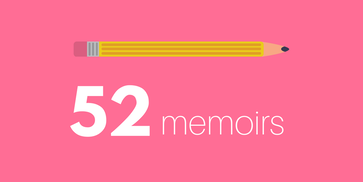
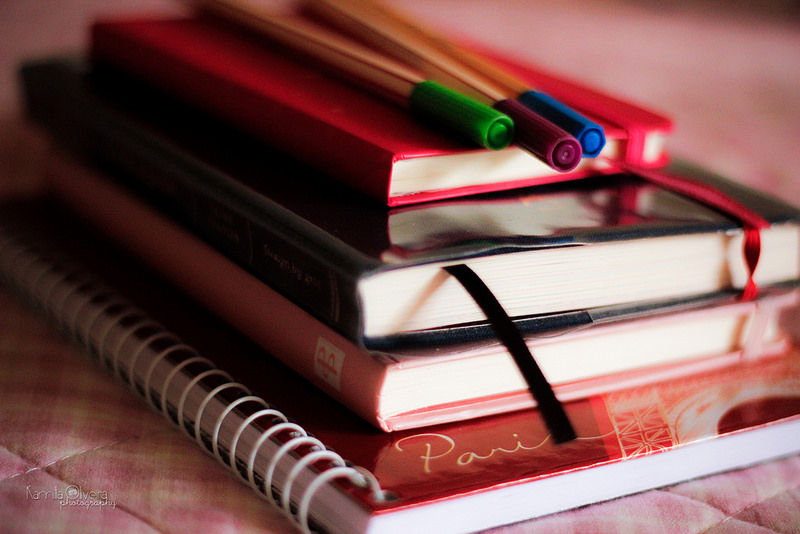
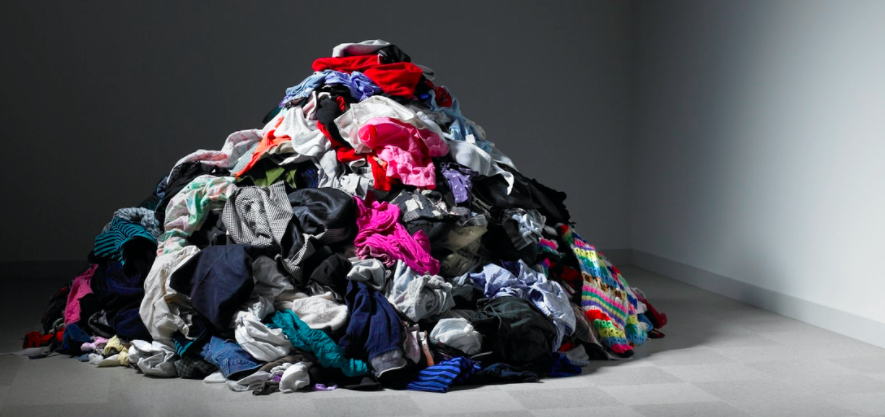
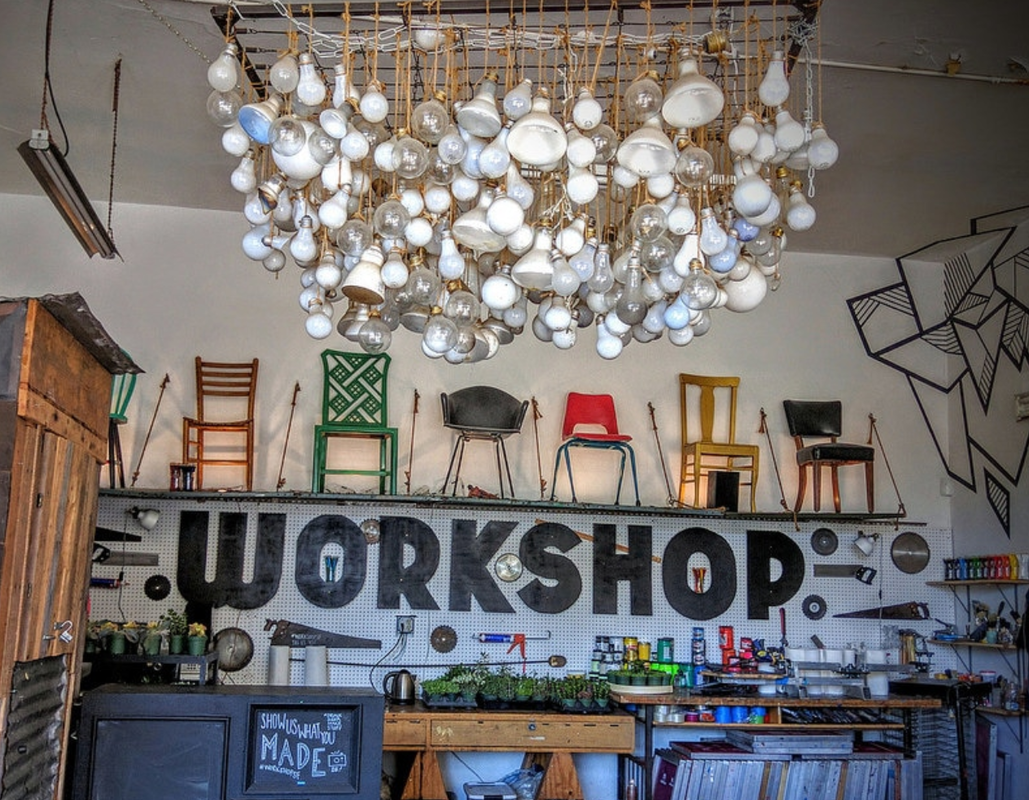
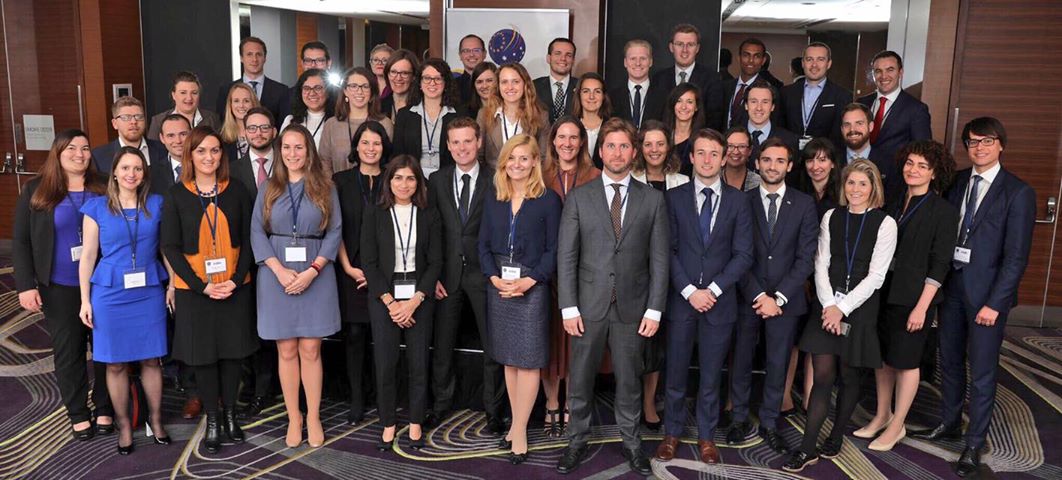
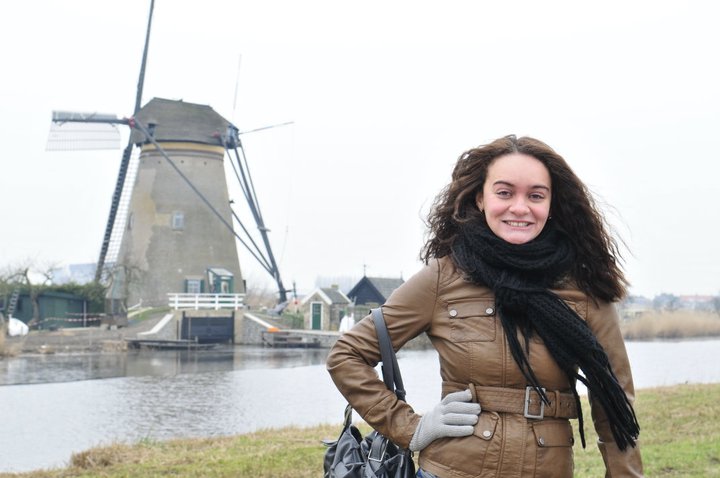
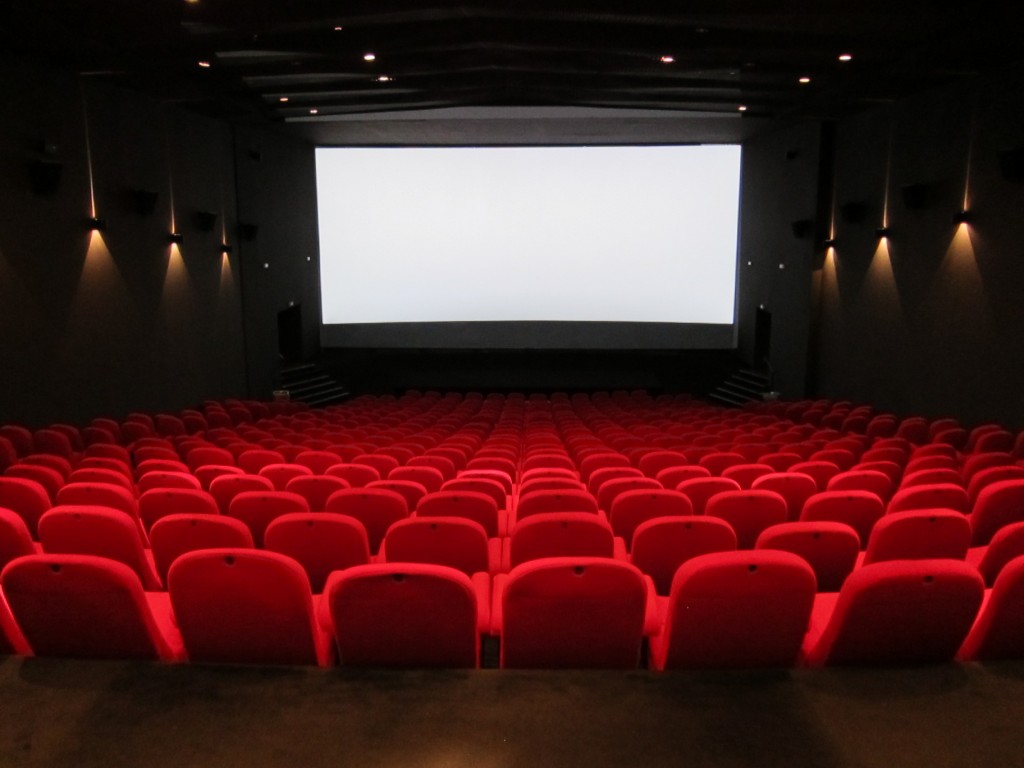
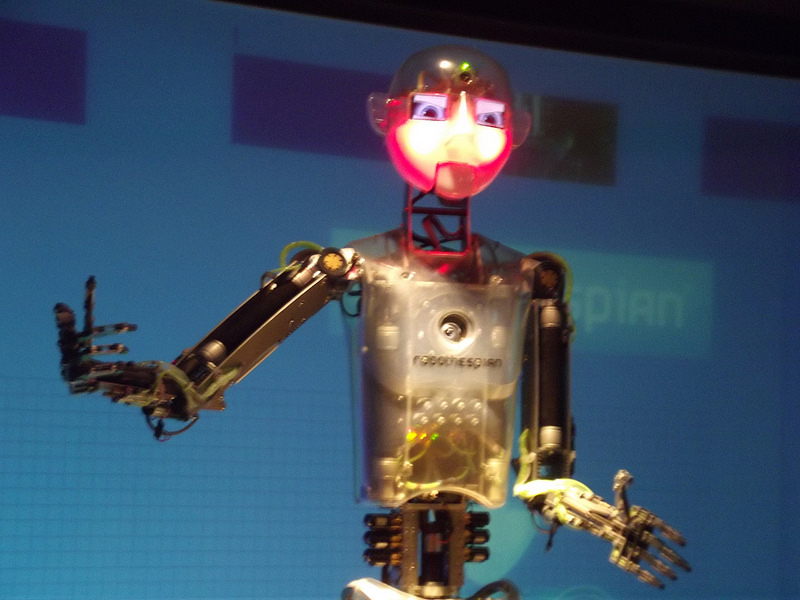
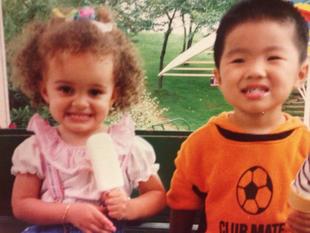
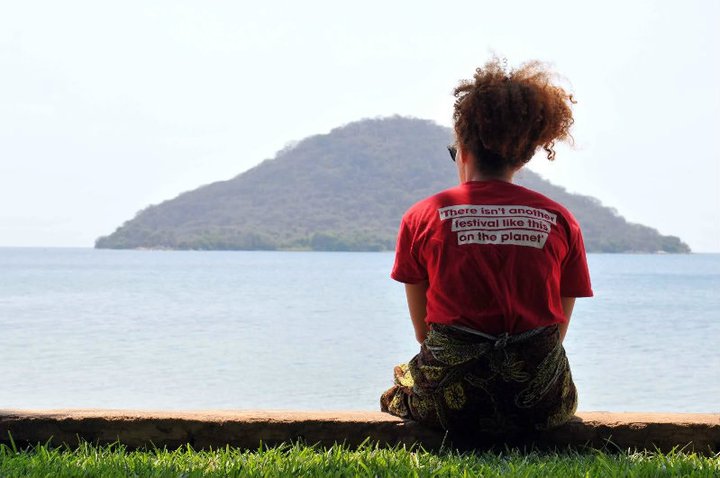
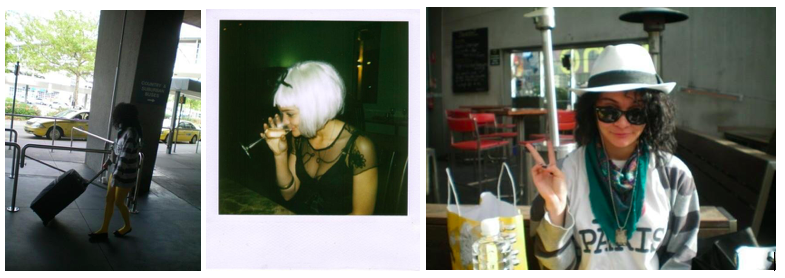

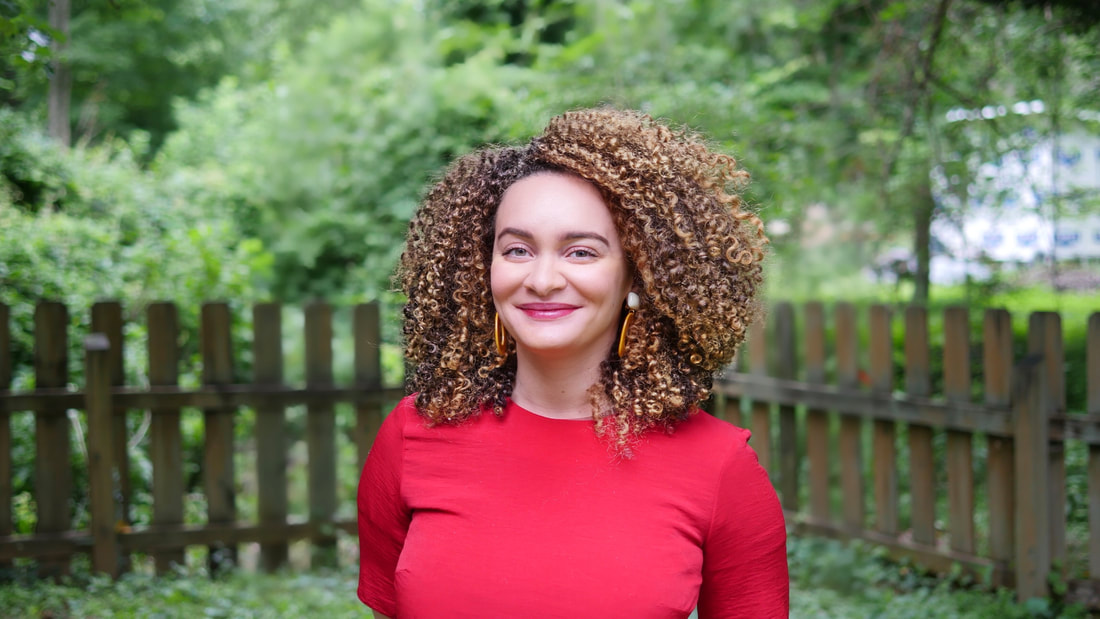
 RSS Feed
RSS Feed